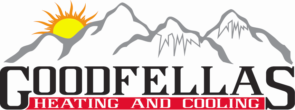Follow Us x
How often should I change my filter?
Your filter should at least be checked every month. The amount your filter needs to be changed, or cleaned will depend on the condition of your air ducts.
Why is my air conditioner freezing up?
There are an abundance of possibilities that can cause your HVAC system to freeze up; almost all of them usually need to be corrected by a professional technician. Determining the air filter is clean or replaced and making sure the airflow is not restricted are about the only tasks a homeowner should safely identify or handle themselves.
Identify or handle themselves.
Low refrigerant: In some cases, freezing up is initiated by a leak in the refrigerant lines. Weak solder joints, friction from piping rubbing or vibrating against an object, leaking valves or loose fittings can cause leaks. The length of time your system has been installed and the nature and location of the leak are the determining factors on whether to have the system repaired or replaced.
Dirty evaporator coil: Over time, the evaporator coil will become dirty. On these occasions, the results are similar to those of having a dirty filter. Gradually you will lose airflow, slowly enough that you probably would not realize it until it freezes up or is not cooling adequately
Defective blower motor: A blower motor running at an improper speed or not running at all can cause freezing. It can also be sporadic, starting at full speed and slowing down after it heats up.
Should you discover that your system was freezing due to a dirty air filter, after replacing or cleaning the filter, you can escalate the thawing process by turning the system off and then turning on only the fan.
What are the benefits of a whole house humidifier?
When in heating mode, people are confined indoors with unusually dry air for many months each year. Humidifiers help the right comfort level of humidity, and properly maintained levels of humidity are beneficial for your respiratory system. Whole-house humidifiers work like your more typical room humidifiers. They distribute moisture into the air, making harsh, dry air much easier to breathe. And whole-house humidifiers add humidity throughout the house, no more moving a humidifier from room to room, spilling water on the floor as you go. This will also help prevent your wood floors or cabinets from cracking, and is required by all wood floor manufacturers for warranty purposes.
How can I better manage my utility costs?
With energy costs climbing, there are a few steps you can take to help reduce the expenses of heating and cooling your home. HVAC equipment usually uses more energy than any other appliance in the home. This inevitably shows up every month on utility costs each month, but it's important to remember that energy costs can be controlled in several ways.
Maintenance: One method to control energy costs is to schedule annual maintenance to help be sure that your furnace and air conditioner is running properly and efficiently. Operating dirty heating or cooling equipment can result in unnecessary loss of efficiency and may even damage the unit.
High Efficiency: If you are in the market for a new home comfort system, consider investing in a high-efficiency system. They are designed to help reduce your energy costs as well as help conserve natural resources. When selecting a new home comfort system, pay close attention to the SEER rating of the air conditioner and the AFUE of the furnace. The higher the SEER or AFUE, the higher the efficiency and savings.
Programmable Thermostats: Programmable thermostats can make a big difference in energy consumption. Since you can proactively set a schedule for the days and times that the home is occupied, these thermostats are able to deliver exact comfort, efficiency and energy savings. For example, if you're going to be away, you can set the whole house at an energy-saving temperature to avoid heating or cooling an empty house and conserving energy in the process.



